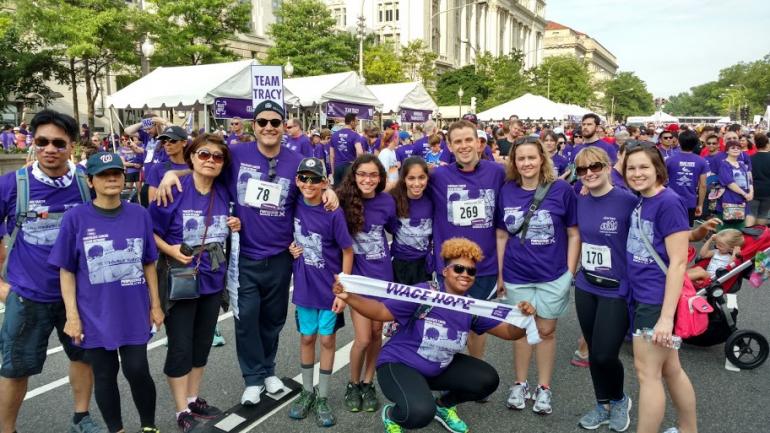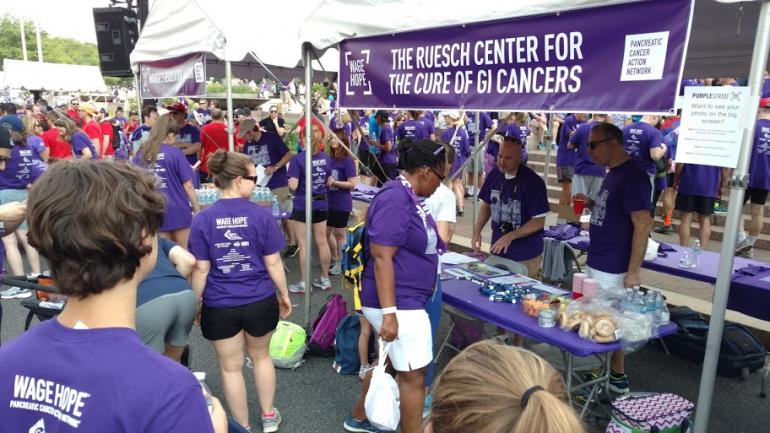PanCAN PurpleStride Commemorates Struggles, Triumphs Toward A Cure

Posted in Lombardi Stories | Tagged gastrointestinal cancer, PanCAN PurpleStride, pancreatic cancer, philanthropy, Ruesch Center
June 17, 2016 — “When we first found out about his diagnosis, I told him I would be with him every step of the way,” said Sarah Saleh, whose husband, Rashid, was a Georgetown Lombardi patient. “He said it gave him strength to have me with him.”

Many Georgetown Lombardi families at the annual PanCAN PurpleStride, hosted by the Pancreatic Cancer Action Network on June 12, echoed her story. An annual event, the PurpleStride 5K Run/Walk benefits pancreatic cancer research and is sponsored in part by The Ruesch Center for the Cure of Gastrointestinal Cancers.
The Ruesch Center teamed up with MedStar Georgetown University Hospital to raise money for the cause. Forty people joined the team, which was led by Ricci Sheridan.
The Run/Walk is about people, commemorating both their struggles and triumphs in relation to pancreatic cancer.
Pancreatic cancer is the fourth leading cause of death in the United States and has the lowest survival rate of any cancer. Since 2003, The Pancreatic Cancer Action Network has funded 94 research grants with nearly $18 million in hope of curing this deadly disease.
Research Opportunities
Dr. Michael Pishvaian, Phase I program director and assistant professor at Georgetown Lombardi, noted that since 2011, meaningful improvements have been made in the field of pancreatic cancer research.
“In a recent clinical trial for patients who have an underlying genetic defect in their tumor and respond to PARP inhibitors, there has been a remarkably prolonged survival time of two years or more, as opposed to eight to eleven months.”
“Tailoring the therapy to the molecular makeup of patients has the potential to make strides in the field of pancreatic cancer,” Pishvaian continued.
Moving Forward
Important advancements in research, along with a strong batch of hope, are what the PanCAN PurpleStride means to patients, caregivers, researchers, and survivors alike — a means for moving forward, as one does with a stride and a jump toward a cure.
Christie Maillet
Georgetown Lombardi Communications
